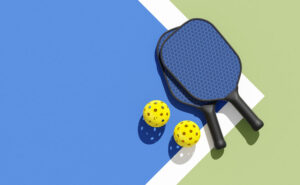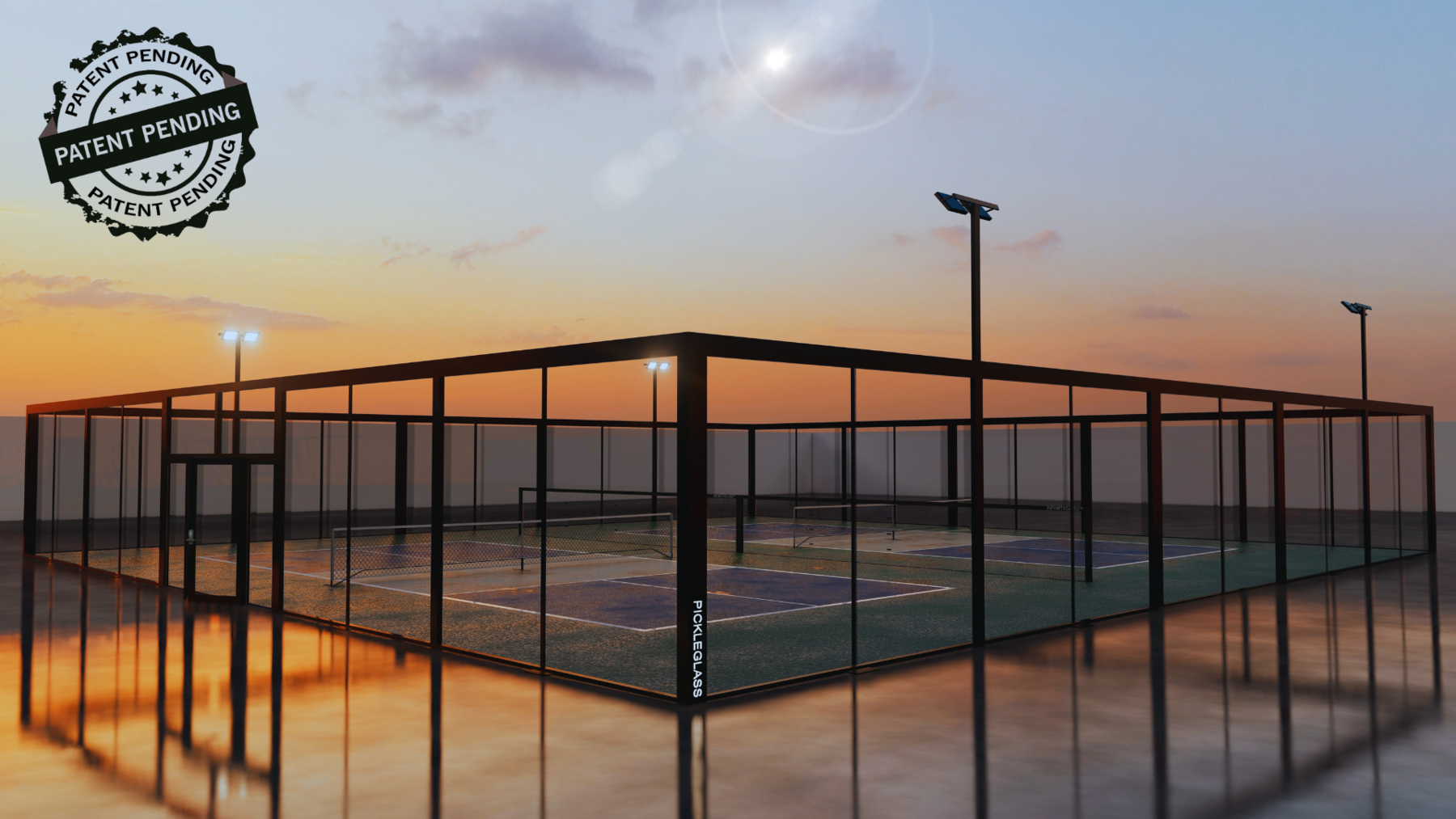Nearly every sport has its own iconic soundscape. In basketball, there’s the squeaking of sneakers and the swish of the net. Golf clubs have that satisfying metallic ping of a hard drive. And there’s gridiron football’s crunching of shoulder pads and grunting of giant men.
However, few sporting soundscapes generate as much controversy as the distinct hollow pop of a pickleball volley.
The combination of hard plastic balls and hollow paddles can create a loud noise that echoes across indoor courts and into surrounding neighborhoods. That popping sound can often exceed 85+ decibels, creating an ambiance that stirs controversy in many communities.
Although pickleball is enjoying surging popularity–often cited as America’s fastest-growing sport–there’s also frequent pushback whenever communities float the idea of installing new pickleball courts.
So, how can pickleball enthusiasts address the concerns of their fussy neighbors while still enjoying this awesome game? What steps can we take to ‘soundproof’ pickleball?
In this post, we’ll look at three primary ways to reduce the noise generated by
Noise Reducing Equipment
One of the best ways to reduce the noise of pickleball is through the type and quality of equipment. Compared to other racquet sports like tennis, the highly rigid equipment of pickleball means much louder play, especially with old-school wooden or aluminum paddles.
However, that’s changing.
Last fall, USA Pickleball announced a new equipment certification called the Quiet Category to promote products that reduce the overall noise level generated by the sport.
Noise Reduction Paddles
Paddles play a crucial role in the soundscape of a pickleball game, with their design and construction significantly affecting the noise level produced during play. Recent advancements in paddle technology have led to the development of models specifically engineered to minimize noise, incorporating materials such as polymer cores and specialized composites that absorb impact and dampen the characteristic pop sound.
Polymer cores are the most common core material in modern paddles and feature honeycomb structures that effectively absorb impact vibrations, minimize noise, and offer a balanced blend of durability, touch, and power.
OWL Sport is the first brand to achieve USA Pickleball’s Quiet Category certification. However, OWL is not alone in their endeavor. There are a number of products on the market that tout their ability to reduce the noise generated by the game.
Pickleball Sound Mitigation has spent the past decade trying to… well, mitigate the sound of pickleball. They’ve conducted original research and created their own list of “Blue Zone” recommended paddles.

Quieter Pickleball Balls
The balls are crafted from a hard plastic material and are designed with holes throughout their surface, intended to enhance aerodynamics and control during play. However, these features are also what causes that sharp, resonating pop sound.
This is particularly true of outdoor balls, which are harder and heavier than indoor balls.
Some brands tried to solve this problem by manufacturing balls with softer materials like foam.
For example, Gamma’s used to manufacture a Foam Quiet Ball and advertised them as the less-noisy alternative. But the problem was many players felt the softer materials lowered the quality of play, and they’re now marketed as a “Kids Practice Ball.”
The recurring issue with balls is the balance between noise and quality of play. What might be passable for some hobbyists won’t be acceptable for more serious players or approved for tournament play.
Which is great for hobbyists (i.e. the vast majority of pickleball players) However, these softer materials aren’t approved for most sanctioned tournament play.
But that doesn’t mean that companies have given up trying. According to Pickleball Sound Mitigation, the quietest USA Pickleball-approved ball is the Monarch Gen 2, thanks to its softness.
Sound Reducing Court Modifications
Beyond the equipment, augmentations to a court can help mitigate the noise from a game of pickleball.
Fencing (windscreens and acoustic barriers)
Another cost-effective solution includes installing windscreens and acoustic barriers. This can be particularly effective for courts only enclosed by chain link barriers that do nothing to mitigate sound.
These acoustic barriers or panels vary in quality, cost and effectiveness.
One option is simple mesh windscreens. Windscreens differ in thickness and material and are better than a bare chain link fence. However, as the name suggests, they are more intended to prevent wind from interfering with players rather than dampen the acoustics.
Acoustic blankets and wraps provide another option. These are more effective at lowering the noise level outside the courts. However, acoustic wraps can be deceptively costly, peaking into the tens of thousands of dollars for multi-court setups.
Soundproof Barrier: PICKLEGLASS™
However, the single most effective court-modification solution to reducing pickleball noise is the use of soundproof glass barriers instead of chain link fencing or acoustic wraps.
In particular, PICKLEGLASS™ has been verified by an independent, certified testing facility to reduce the noise level generated by 50%.
In addition to noise reduction, another advantage of glass barriers is aesthetics. Instead of the rather unsightly acoustic panels or wraps, glass barriers provide a clean, modern look that is visually stunning and blends in seamlessly with the surrounding environment, allowing spectators to easily follow the game.
If you’re looking to install pickleball courts in your community but are worried about the noise level generated, we here at PICKELTILE™ can help ease your concerns.

